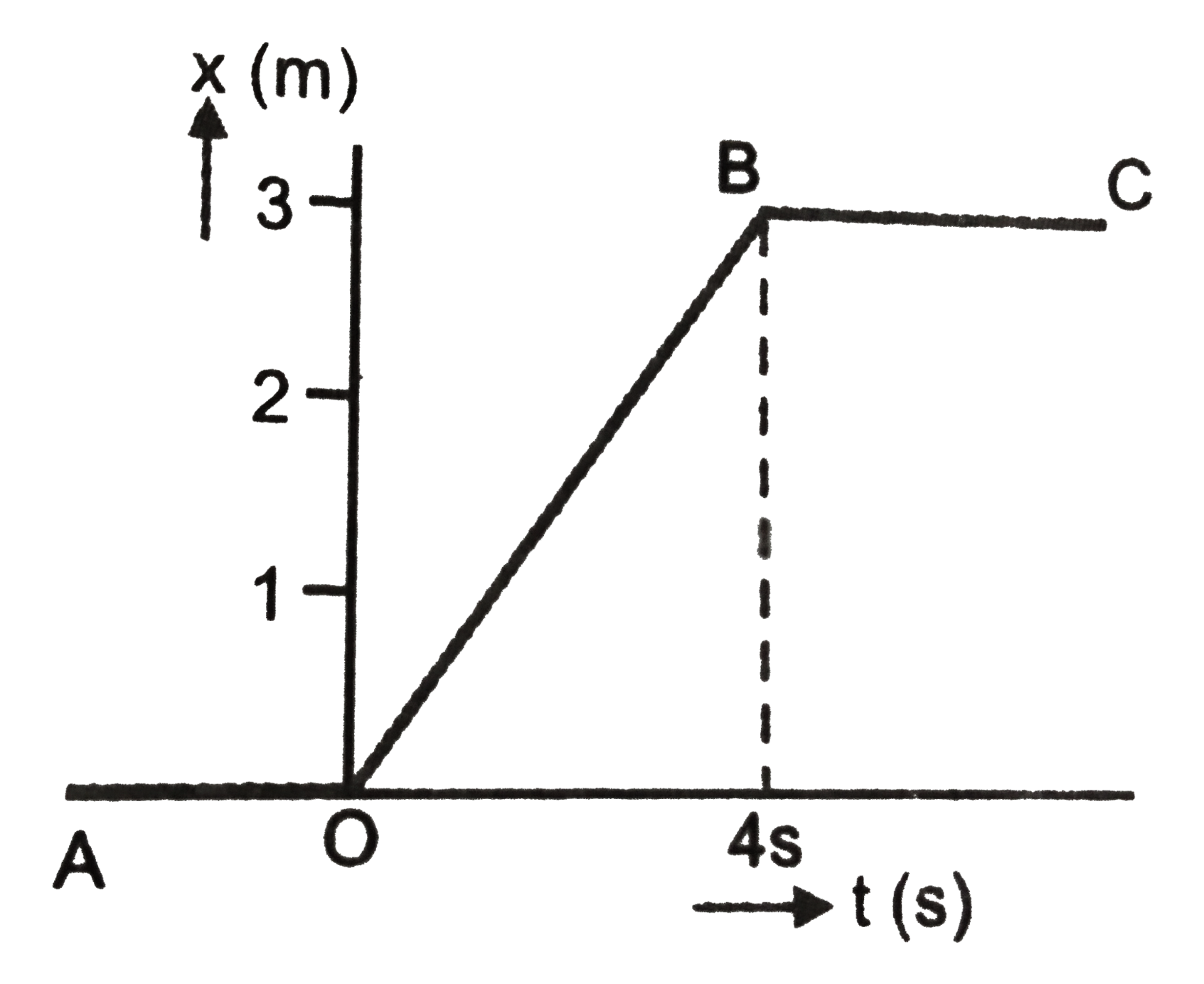The motion of a particle of mass m is given by x=0 for t<0 s, x (t) = Asin4πtfor0<t(1/4)s(A>0) and x=0 for t>(1/4) s Which of the following statement(s) is (are) true?
The force at t=(1/8) s on particle is −16π2 A-m
The particle is acted upon by an impulse of magnitude (4π2A−m) at t=0 s and t=(1/4) s.
The particle is not acted upon by any force
The particle is not acted upon by a constant force
The correct Answer is:A, B, D
For 0<t<14
x=Asin4πt
v=dxdt=4πAcos4πt
a=dvdt=16π2Asin4πt
At t=18s
a=−16π2Asin4π×18=−16π2A
F=ma=−16π2A−m
Impulse = change in linear momentum
=F×t=−16π2A−m×14=−4π2A−m
Impulse or change in linear momentum is the same at t=0 or 14 s
Force F depends upon A which is not constant therefore particle is not acted upon by a constant force.
Topper's Solved these Questions
- BOOK - GRB PUBLICATIONCHAPTER - FORCE AND NEWTONS LAWS OF MOTIONEXERCISE - Assertion- Reason4videos
FORCE AND NEWTONS LAWS OF MOTION
- BOOK - GRB PUBLICATIONCHAPTER - FORCE AND NEWTONS LAWS OF MOTIONEXERCISE - Matrix match7videos
FORCE AND NEWTONS LAWS OF MOTION
- BOOK - GRB PUBLICATIONCHAPTER - FORCE AND NEWTONS LAWS OF MOTIONEXERCISE - Objective Questions134videos
FORCE AND NEWTONS LAWS OF MOTION
- BOOK - GRB PUBLICATIONCHAPTER - BASIC MATHEMATICSEXERCISE - Problems For Practice35videos
BASIC MATHEMATICS
- BOOK - GRB PUBLICATIONCHAPTER - FRICTION AND CIRCULAR MOTION EXERCISE - Comprehension type11videos
FRICTION AND CIRCULAR MOTION
Similar Questions
Knowledge Check
- Question 1 - Select One or More
The motion of a particle of mass m is given by x=0 for t<0s,x(t)=Asin4πt for 0<t<(14)s(A>0),and x=0 for t>(14)s.
AThe force at t=(18)s on the particle is −16π2A−mBThe particle is acted upon by on impulse of magnitude 4π2A−m at t=0s and t=(14)sCThe particle is not acted upon by any forceDThe particle is not acted upon by a constant force - Question 2 - Select One
For x,t∈R let
pt(x)=(sint)x2−(2cost)x+sint be a family of quadratic polynomials in x with variable coefficients. Let A(t)=∫10pt(x)dx , Which of the following statements are true?
(I) A(t)<0for all t.
(II) A(t) has infinitely many critical points.
(III) A(t) = 0 for infinitely many t.
(IV) A'(t)<0 for all t.A) (I) and (II) onlyB(II) and (III) onlyC(III) and (IV) onlyD(IV) and (I) only - Question 3 - Select One
The velocity of particle at time t is given by the relation v=6t−t26. The distance traveled in 3 s is, if s=0 at t=0
A392B572C512D332
The velocity of a particle is given by v=u0+gt+12at2. If its position is x=0 at t=0, then what is its displacement after t=1s ?
View SolutionFig. shows the position-time graph of a particle of mass 4 kg. What is the (i) force acting on the particle for t<0,t<4s,0<t<4s? (ii) impulse at t = 0 and t = 4 s? Assume that the motion is one dimensional.
View SolutionFig. shows the position-time graph of a particle of mass 4 kg. What is the (i) force acting on the particle for t<0,t<4s,0<t<4s? (ii) impulse at t = 0 and t = 4 s? Assume that the motion is one dimensional.
View SolutionThe equation of linear S.H.M. of a particle is given by x=0.5sin[4πt−π3], the term π3 represents
View SolutionFigure shows the position time graph of a particle of mass 5kg. The force acting on the particle for 0<t<4s and 8s<t<12s respectively are,
 View Solution
View Solution

 .
.